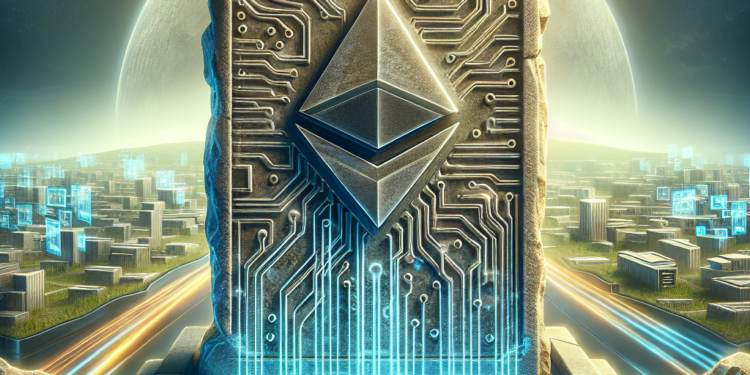A Glance at Ethereum: The Cornerstone of Modern Cryptocurrency
When we talk about cryptocurrency, the first thing to strike our mind is Bitcoin, isn’t it? But, there’s a world beyond Bitcoin in the cryptosphere known as Ethereum. Ethereum has emerged as a leading player, providing an innovative platform that goes beyond cryptocurrency transactions. It has opened new avenues for building and deploying decentralized applications (dApps).
Ethereum was proposed in late 2013 and brought to life in 2015 by a cryptocurrency researcher and programmer, Vitalik Buterin. Envisioned as a decentralized, blockchain-based platform, Ethereum facilitates smart contracts. In simpler terms, it allows two parties to interact directly with each other without the need for a middleman.
What sets Ethereum apart?
While Ethereum shares its blockchain roots with Bitcoin, the two are vastly different. Audi and Ferrari both make cars, but a Ferrari still catches our eye, right? It’s similar with Ethereum. Here’s how:
- Smart Contracts: These are self-executing contracts where the agreement’s terms are written into lines of code. The magic with Ethereum, is that these smart contracts run exactly as programmed without any possibility of censorship, downtime, fraud or third party interference.
- Decentralized Applications: Ethereum gives developers the freedom to create a broad range of applications directly on the Ethereum blockchain. These dApps function based on the principles of blockchain like immutability and decentralization.
- Ether: This is the native cryptocurrency of the Ethereum network. Used primarily for facilitating operations on the Ethereum network, it’s more than just a digital currency.
The Power of Ether
Ether is not just a “buy and hold” type of cryptocurrency. Its usage goes well beyond that. It’s the fuel that drives the Ethereum network. Every operation that takes place in the Ethereum network including the execution of smart contracts and transaction costs, is fueled by Ether. This gives Ether a real-world utility value, apart from just being a tradable asset.
Ethereum and Decentralized Finance(DeFi)
Ethereum has been the driving force behind the recent Decentralized Finance (DeFi) boom. DeFi applications are built on top of the Ethereum blockchain, using its smart contract functionality to create decentralized digital assets and financial smart contracts. These DeFi applications aim to recreate traditional financial systems such as loans and interest, without a middleman. For more related news articles, visit DeFi Daily News.
Ethereum is perhaps the most versatile and influential blockchain platform out there. Its scope goes beyond just being a cryptocurrency. By enabling the development and execution of smart contracts and decentralized applications, it is revolutionizing the world of blockchain and taking it towards real-world applications.
Conclusion
All in all, Ethereum is an innovative platform that goes beyond being just a medium of cryptocurrency transactions. With its smart contracts and the ability to create decentralized applications, it has truly emerged as the cornerstone of modern cryptocurrency. It’s providing new opportunities for developers, making blockchain more accessible, and potentially changing the face of internet interaction.
FAQs
What is Ethereum?
Ethereum is a decentralized, blockchain-based platform that allows the creation of smart contracts and decentralized applications.
What is a Smart Contract?
A Smart Contract is a self-executing contract where the terms of the agreement are written into lines of code.
What is the significance of Ether?
Ether is the native cryptocurrency of the Ethereum network. It fuels all the operations that take place in the Ethereum network.
How is Ethereum different from Bitcoin?
While both Ethereum and Bitcoin are blockchain-based platforms, Ethereum goes a step further by enabling the creation of decentralized applications and execution of smart contracts.



















